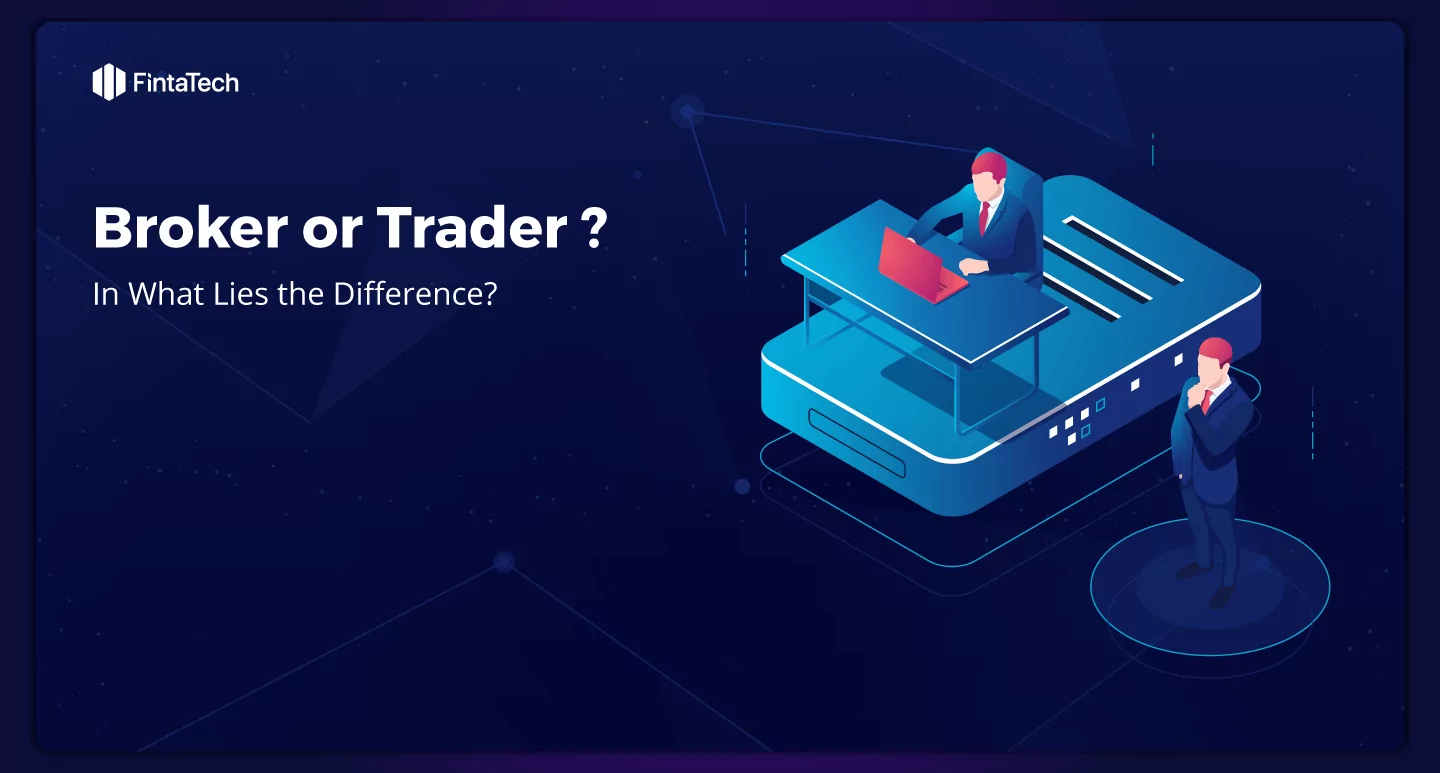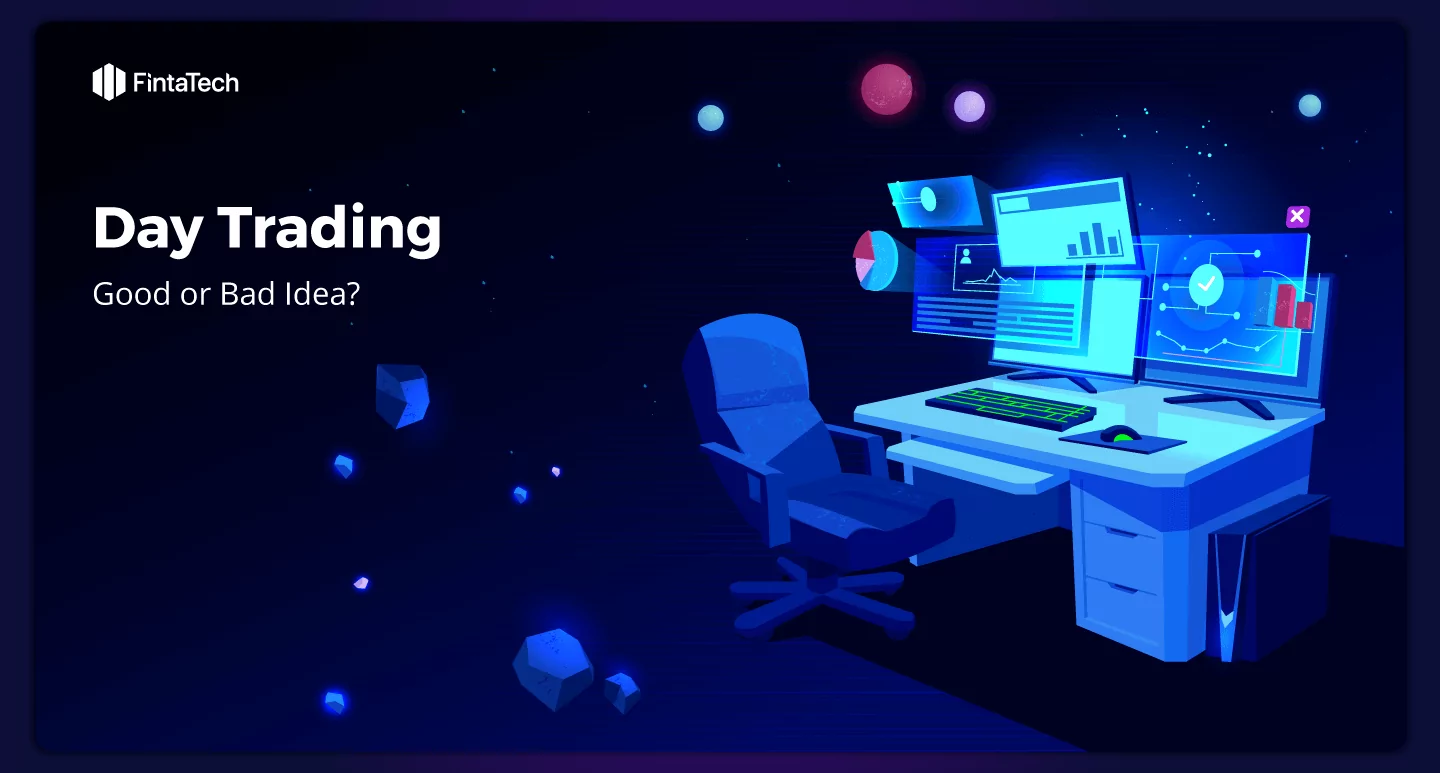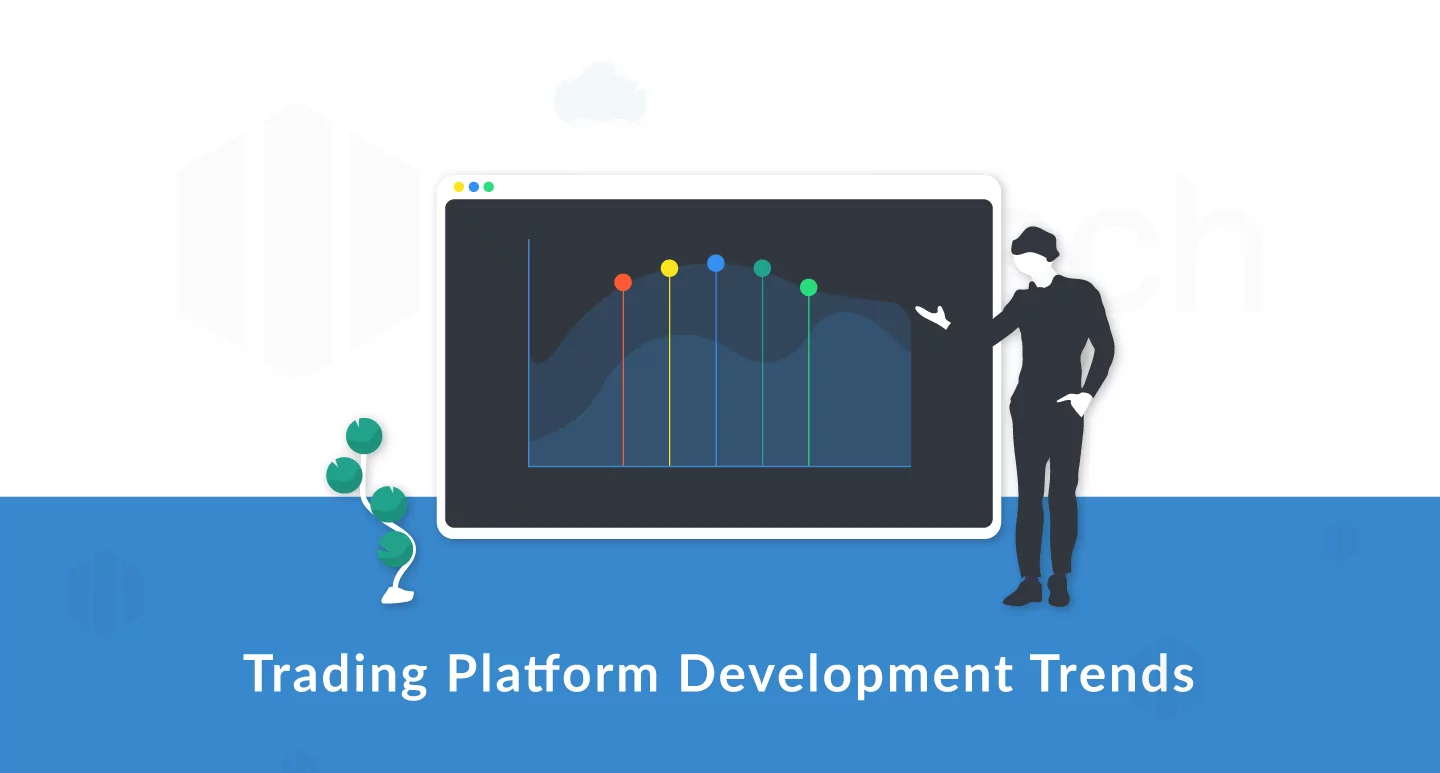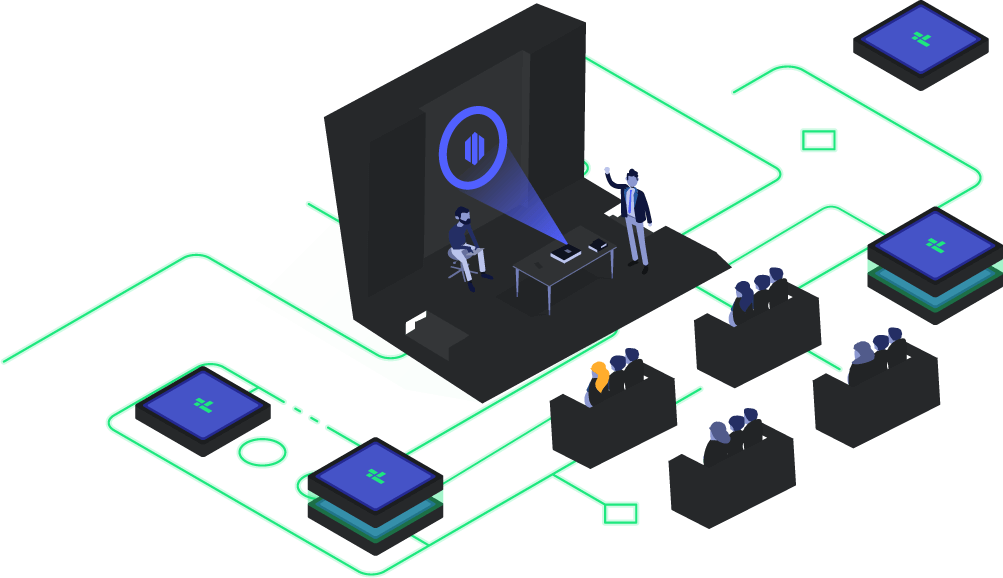Beginners who only start their journey in a trading career often need clarification on the terms’ trader and broker. Of course, these concepts have some similarities as they both belong to the area of stock trading. However, the difference is still significant. To understand the nature of these careers better, let’s first see what they do and how they make money.
We will not stuff you with the financial terminology as it may confuse you even more. We aim to help you decide what career path suits you best – broker or trader.
What is a Trader’s Mission
A trader today is the one who makes online trades on the exchange. He can trade independently as a businessman using his own money or with investors’ money. Also, having financial education, he can work as a hired trader, for example, in a bank, and receive a salary:
a trader makes deals with employer’s money → employer gets all the profit → trader gets wages
However, in some cases, traders can work as employees and at the same time receive a percentage of the profit, making their own money.
Most traders work today as freelance businessmen, investing and risking their own money. They do not rely just on luck but on knowledge, professionalism, and self-control.
In a broad sense, a trader is a person who earns a natural difference in price that’s formed without his involvement. In other words, he profits from price increases occurring without added value formation.
So, traders are those guys who buy and sell different currencies, cryptocurrencies, stocks, futures, options, metals, and other goods on the exchange. The main task for a trader is to buy goods at the lowest price and then sell them at the highest. And since the price movement is independent of the trader’s engagement, their work could be more complex.
Only some can become a trader, but only some are professionally suited for trading.
If you prepare to take a trader role as the main profession, you must learn as much as possible about financial markets. Watching financial news on CNBC or reading “The Wall Street Journal” or “The Financial Times” can be the best training guides for starters.
Summing up, we can highlight the following:
- trader is mostly an independent market player who makes decisions by himself;
- the trader must have a financial background to be able to analyze the market news;
- the trader is ambitious, alert, detail-oriented, sociable, and ready to take risks.
If, by reading this, you think, “Woah, that’s just for me,” then the ball’s in your court. Invest some time to train your skills to become a top trader – thank God there are various trading platforms with demo accounts available.
What is a Broker’s Mission
A trader can only buy or sell goods with a special sales agent called a Broker.
A broker is an employee of a brokerage company that concludes buy/sell transactions in the financial markets on behalf of a trader. Broker doesn’t use shareholders’ funds but performs intermediary services by connecting traders with the market and earns a living through commissions and fees from transactions.
Note that it’s only traders who invest money in buy/sell. Not brokers nor the exchange.
So, the main trader-broker difference is that the first one makes money on price fluctuations. In contrast, the second one provides intermediary services. That means if a trader loses by making an expensive purchase and selling cheap, a broker still wins since he will receive his percentage for the transaction anyway.
A broker supports a trader along the way of making a transaction.
But thanks to the exchange broker’s task, it is highly simplified since there are thousands of currency traders. It is a place where sellers and buyers meet, and a broker acts as a link of transaction. Just imagine the exchange owners organizing transactions between individual traders… They could have gone crazy if there were no brokers!
However, if any market geek can become a trader, you’d need a special license for brokerage activities. To enter the stock market, you’d need a Financial Industry Regulatory Authority license (FINRA, formerly NASD), which gives you the right to buy and sell stocks, bonds, or other securities.
Many brokerage and investment companies accept candidates without a license, conduct training and courses, and pay fees for them to pass the necessary exams.
The working day of a broker is intense and diverse. Many brokers love their job and choose it as a main line of business. So, if you like being busy and you’re nuts at sales and finances, the broker career may suit you.
Let’s summarize all the pieces and highlight the following differences between brokers and traders.
Key Differences Between Traders and Brokers
- A trader takes the initiative to sell and buy currencies (or other commodities).
- At the same time, a broker provides intermediary services only.
- Traders earn on the price difference, and for this very reason, it’s super important for a trader to buy goods at a low price and sell them at a high price to get a profit. Brokers earn on the percentage of the trader’s transaction volume. Therefore, the broker only needs traders to trade – and trade big – no matter how successful the trading is.
- If the trader fails to sell at a higher price, it will lead him to losses. And since brokers earn on the percentage of the transactions, they only care a little about traders’ professionalism. They are ready to support market newbies, whether they are students or golden-agers.
- Since brokers have a large supply of foreign currencies to ensure liquidity, traders refrain from competing with each other to buy faster at a better price. In turn, brokers have fierce competition to attract market players as their income depends on the number and volume of traders’ transactions.
The key to winning this battle is a modern, user-friendly, multifunctional trading platform and a successful marketing strategy.
At Fintech Company, we’ve been helping dozens of brokers build innovative web-based trading platforms and exchanges that won their market share and attracted millions of traders. For 13 years, the team’s been exploring the industry’s ins and outs, and we want to deliver our knowledge, experience, and resources to create products with a range of powerful capabilities.
Today, we provide ready-to-use, flexible trading solutions for brokerage, such as trading platforms, charting components, and data-server solutions.
Check out our free Trading Platform Demo and see what you can get (or better!). Do not hesitate to contact us at support@staging.fintatech.com
Since all traders are in the same boat, you can easily access forums where they share the secrets of successful trading, but brokers never reveal their secrets. Therefore, broker-dealers try hard to create good working conditions for traders (training materials, minimal commissions, different ways of entry and exit, etc.)
If you are wondering about broker vs trader salary, note that the broker is guaranteed to receive income regardless of the trading results. A trader makes a profit using the correct strategy to match market trends.
Still, both traders and brokers can make a pile of money, so it’s more about personal chemistry, brains, and desire to make a profit.
Wrap-Up
Based on the above, a trader’s and a broker’s careers are not boring.
The main reason people want to dive into the financial environment is, of course, money. But besides, you’d need to have a passion for market movements, investments, and a flexible mind.
If you are active and easy to get on with people, then the broker path is right for you.
If you are a nerd at math and love to analyze, then a trader’s career fits your vocation.
Whatever you prefer the most, be ready to enter the fast-paced and challenging workplace because dealing with money is no easy job.





Twitter
Linkedin
Facebook